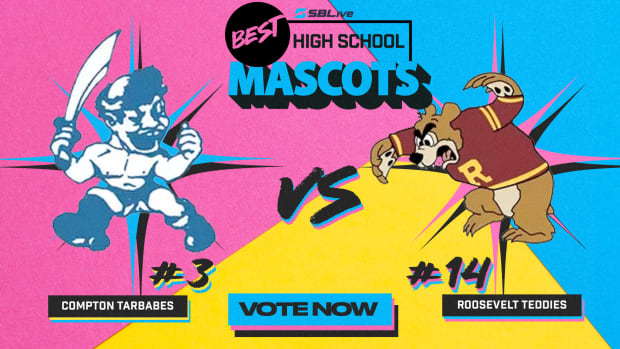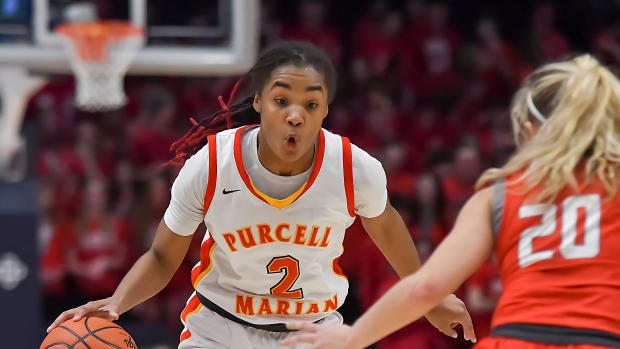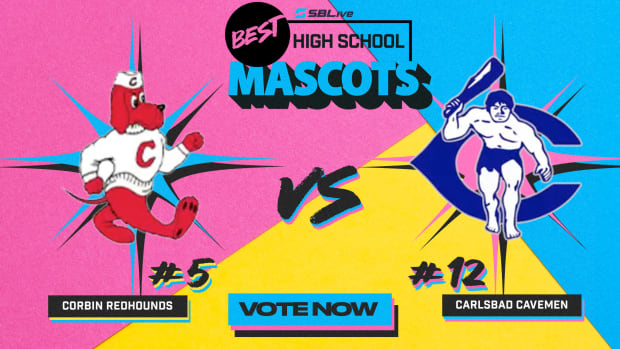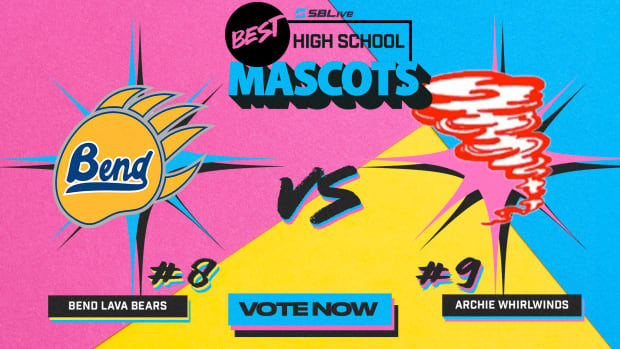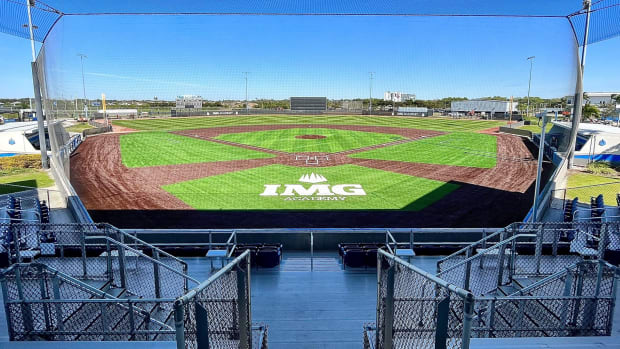Washington’s top high school baseball prospects have spent summer competing on national stage with the Canes

Marysville-Getchell's Malakhi Knight, O'Dea's Max Debiec and Bainbridge's JR Ritchie are turning heads
Malakhi Knight is no stranger to baseball ID camps, regional all-star games and regional showcases.
But when the Marysville-Getchell standout outfielder received an invite to play with the Canes, a nationally competitive club based in the Southeastern U.S., the state of Washington’s top high school prospect saw it as an opportunity to prove himself against not just the best of the Pacific Northwest, but also the top players from warm weather states.
Knight’s longest trip away from his parents and his home was well worth the miles traveled.
Alongside O’Dea pitcher Max Debiec (a Washington commit), the second-best prospect in the state’s class of 2021, and Bainbridge 2022 standout and Oregon State commit Ian “JR” Ritchie, the three have repped the state of Washington against some of the country’s best young baseball talent.
Playing with the invite-only club, they say, has helped smooth over the loss of the spring high school baseball season while providing a chance to play in front of scouts while many in-state prospects are left with few summer options. It sure helped raise the profile of Lakeside grad Corbin Carroll, who was drafted 16th overall in 2019.
“I was really upset when the high school season got canceled,” said Knight, who missed most of his sophomore baseball season at Marysville-Getchell with a back injury.
But the center fielder had an invite to join the Canes, which meant he would face a barrage of soon-to-be high-major and professional pitchers consistently tossing in the mid-90s.
President and CEO, 18U head coach of Canes baseball
One of those capable arms was his own teammate. Debiec, a 6-foot-7 righty, capped out around 96 miles per hour after being one of four pitchers to touch 97 miles per hour at a Perfect Game National Showcase in late June. (After consulting scouts, MLB.com lauded Debiec as the No. 9 best performer at the event)
Ritchie, a 6-foot-2 right-hander, made an immediate impact at Bainbridge as a freshman with his ability to locate off-speed pitches and not rely solely on physical strength. He joined Knight, Debiec and the Canes midway through the summer.
“Consistently we’re seeing Division I baseball player after Division I baseball player competing against each other,” Ritchie said. “It was the best competition I’ve ever played against.”
All three were willing to travel across the country and play in front of scouts and fans during a global pandemic in states that have instituted less restrictive mandates to combat the spread than Washington. Ritchie and his dad had initial hesitation, but ultimately decided they could be cautious on their own, and that it was worth the risk.
When Debiec got the invite, a COVID outbreak was taking place in Seattle, so he became set on playing with the Canes.
“We thought club baseball was going to get shut down,” Debiec said. “We made Canes a must to-do, because that would give me the only baseball I could play, which was all East Coast like in Atlanta and Alabama.”
Knight, who was first courted by the Canes after an Area Code event last summer, said the team wore masks everywhere expect for the diamond when they were playing. During his downtime, Knight spent most of his time in a hotel.
“I’m not really getting exposed at big malls or anything,” Knight said.
A combination of some 300 fans and scouts attended a game headlined by Tennessee commit Chase Burns, who is among the nation’s top pitching prospects, Knight said. The players also said one teammate tested positive for the coronavirus while he went home between tournaments, and returned once he was rid of the virus.
The experience with the Canes is something all three feel appreciative of during a time where opportunities for exposure are more limited than normal for Washington prospects.
All three made the most of their opportunity.
Debiec gave up just three runs in 20 innings pitched. Ritchie had 19 strikeouts and gave up 11 hits and three walks in 15 2/3 innings pitched and was named to the all-tournament team at the USA Baseball 16U national championships in North Carolina. Knight hit .329 with 15 singles, six doubles, a triple, a homer, 15 RBI and 12 walks.
In early August, Knight, Ritchie and Debiec competed at the Area Code Games in Atlanta, a national high school all-star showcase littered with scouts and college coaches. Several more of the state’s top high school prospects were invited, too, including Kalama’s Tommy Brandenburg, Bainbridge’s Nate DeSchryver and Kai Francis, Fife’s AJ Guerrero and Skyview’s Caden Vire.
It was a goal of Ritchie’s coming into the summer. He was the only 2022 player on his team’s roster.
“I’m super pumped that I got that opportunity,” Ritchie said.
Early eyes on the 2021 MLB Draft
Under a year out from the 2021 MLB Draft, where do the state’s two best prospects — Debiec and Knight — project?
It’s hard to say with any precision, considering the myriad ways the pandemic has and will impact the world of college and professional baseball. The 2020 MLB Draft was cut from 40 rounds to just five, leaving many prospects the option of going to college. Some, like Camas’ Tyler Forner, signed as undrafted free agents for less money than they reasonably could have earned in previous years.
Debiec and Knight will not likely have to worry about that next summer.
- RELATED: Washington’s Top 20 baseball players by position: PITCHERS | OUTFIELDERS
According to subscription scouting service Prep Baseball Report, Knight is the top-ranked player in the state of Washington and Debiec is a close second for the class of 2021. Nationally, PBR evaluated Knight as the No. 48 prospect overall and Debiec isn’t far behind at No. 54.
So where do they project in the draft?
“I would say they're probably looking at top three round consideration,” PBR Northwest scouting director Dan Jurik said.
But a lot can change in a year. According to Jurik, there are several key factors in determining a prospect’s draft stock regardless of the structure of the draft. Prospects can place a price tag on themselves requesting a certain amount for a signing bonus, organizations will look at how firm a high school prospect’s college commitment is and how the prospect performs throughout the year.
“That can dictate a lot on the high school guys because if a group of college hitters or pitchers pop weight or develop a ton of momentum or helium during the season, they usually can elevate their status a bit easier than high school guys, because there's less risk involved,” Jurik said. “Statistically, it's just a bit safer to go on the college side of it.”
Playing with high-level talent like the Canes and turning heads at national-level showcases can only help prospects like Debiec, Knight and Ritchie, because it gives scouts a chance to see how they perform when they’re not the best athlete on the field.
“The physical side can only elevate you so far,” Jurik said. “Once everyone is kind of on an equal playing field with athleticism, who actually gets it done in-game, who performs, who has the skills, the feel, the intangibles that can continue to separate them even further.”
(Photos by Will Chitty, The Canes)

